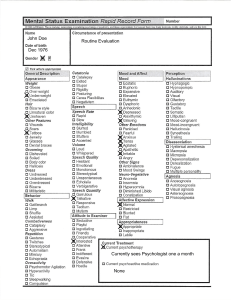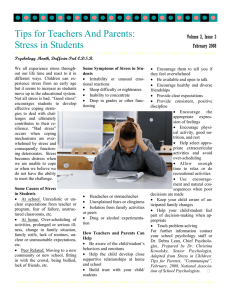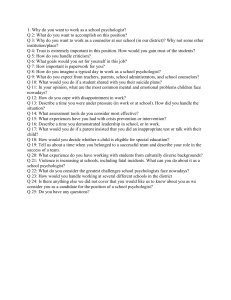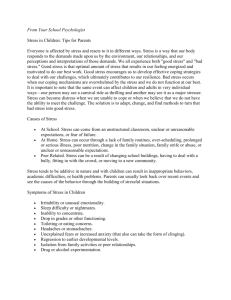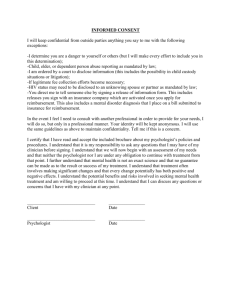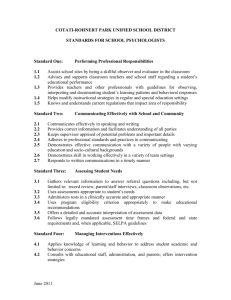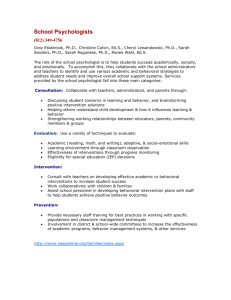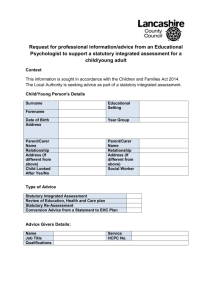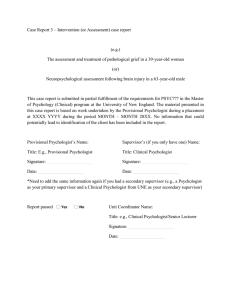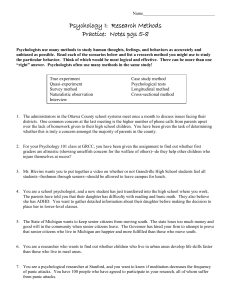Back-to-School Transitions
advertisement
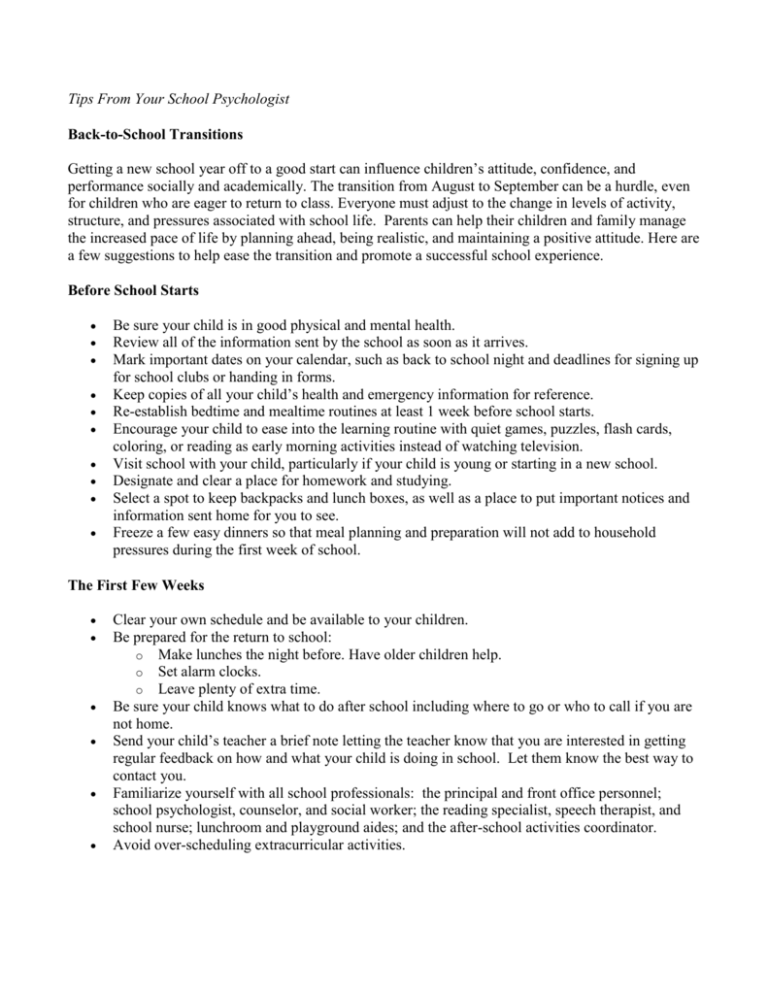
Tips From Your School Psychologist Back-to-School Transitions Getting a new school year off to a good start can influence children’s attitude, confidence, and performance socially and academically. The transition from August to September can be a hurdle, even for children who are eager to return to class. Everyone must adjust to the change in levels of activity, structure, and pressures associated with school life. Parents can help their children and family manage the increased pace of life by planning ahead, being realistic, and maintaining a positive attitude. Here are a few suggestions to help ease the transition and promote a successful school experience. Before School Starts Be sure your child is in good physical and mental health. Review all of the information sent by the school as soon as it arrives. Mark important dates on your calendar, such as back to school night and deadlines for signing up for school clubs or handing in forms. Keep copies of all your child’s health and emergency information for reference. Re-establish bedtime and mealtime routines at least 1 week before school starts. Encourage your child to ease into the learning routine with quiet games, puzzles, flash cards, coloring, or reading as early morning activities instead of watching television. Visit school with your child, particularly if your child is young or starting in a new school. Designate and clear a place for homework and studying. Select a spot to keep backpacks and lunch boxes, as well as a place to put important notices and information sent home for you to see. Freeze a few easy dinners so that meal planning and preparation will not add to household pressures during the first week of school. The First Few Weeks Clear your own schedule and be available to your children. Be prepared for the return to school: o Make lunches the night before. Have older children help. o Set alarm clocks. o Leave plenty of extra time. Be sure your child knows what to do after school including where to go or who to call if you are not home. Send your child’s teacher a brief note letting the teacher know that you are interested in getting regular feedback on how and what your child is doing in school. Let them know the best way to contact you. Familiarize yourself with all school professionals: the principal and front office personnel; school psychologist, counselor, and social worker; the reading specialist, speech therapist, and school nurse; lunchroom and playground aides; and the after-school activities coordinator. Avoid over-scheduling extracurricular activities. Overcoming Anxiety Do not overreact. Even if your child seems distraught at first, they will be fine. Remain calm and positive. Model optimism and confidence for your child. Reassure them that you love them and will be there at the end of the school day. Reinforce your child’s ability to cope. Give them a few strategies to manage a difficult situation on his or her own. Help them identify and connect with at least one friend. Volunteer in the classroom. Get help if serious concerns arise. Contact the school to meet with your child’s teachers and school psychologist. They can offer support that will help identify and reduce the problem, as well as suggest resources within the school and community to help you address the situation. Remember, children are wonderfully resilient. With your support and encouragement, they will thrive throughout their school experience. Adapted from: “Back to School Transitions: Tips for Parents,” Ted Feinberg & Katherine C. Cowan, Helping Children at Home and School II: Handouts for Families and Educators, NASP, 2004. The full handout is available online at www.nasponline.org/families.
